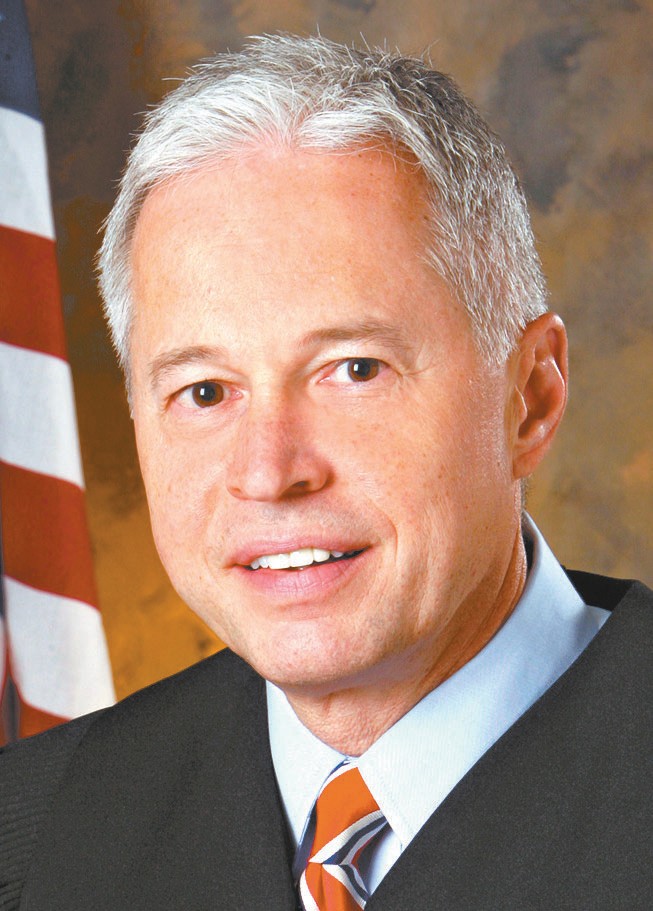Justice Mark Montour, 64, a tribal citizen of the Saint Regis Mohawk Tribe, was appointed by New York Governor Kathy Hochul on Thursday, Sept. 29, to the New York State Appellate Division’s Fourth Judicial Department, which serves Central and Western New York.

With the appointment, Justice Mark Montour becomes the first Indigenous person to serve as a New York State Appellate Court Judge.
Justice Montour was also the first Native American to be elected to a state-level judicial position when he was elected to the New York State Supreme Court for the Eighth Judicial District in 2013. He is also the Chairman of the New York State Tribal Courts Committee, State facilitator for New York-Federal-State and Tribal Courts and Indian Nations Justice Forum, and a member of the Advisory Committee on Judicial Ethics.
When he was elected as a Lancaster Town Judge in 2007, Justice Montour created the drug diversion court, also known as the Lancaster Problem Solving Court, which assisted individuals with overcoming their drug abuse or dependency issues. He oversaw the individual’s treatment and, upon completion of the drug diversion program, the person was addiction free, employed and/or active in school, reunited with family, and their criminal charges have been reduced.
"Justice Montour was previously the acting Administrative Judge for the Eighth Judicial District and the Supervising Judge for Genesee and Wyoming County Town and Village Justice Courts. He is also the Chairman of the New York State Tribal Courts Committee, State facilitator for New York-Federal-State and Tribal Courts and Indian Nations Justice Forum, and a member of the Advisory Committee on Judicial Ethics," Oneida Indian Nation Representative Ray Halbritter said in a statement on Friday.
Justice Montour graduated from the State University of New York at Buffalo School of Law in 1983 and is a long-standing member of the Bar Association of Erie County and of New York State, as well as serves as Chairman of the New York State Tribal Courts Committee, State Facilitator for New York-Federal-State and Tribal Courts and Indian Nations Justice Forum, and is a member of the Advisory Committee on Judicial Ethics.
More Stories Like This
Native News Weekly (August 25, 2024): D.C. BriefsUS Presidents in Their Own Words Concerning American Indians
Monday Morning: (January 19, 2026): Articles You May Have Missed This Past Weekend
Native News Weekly (January 18, 2026): D.C. Briefs
Federal Judge Orders ICE to Halt Use of Pepper Spray, Arrests of Peaceful Protesters in Twin Cities
Help us defend tribal sovereignty.
At Native News Online, our mission is rooted in telling the stories that strengthen sovereignty and uplift Indigenous voices — not just at year’s end, but every single day.
Because of your generosity last year, we were able to keep our reporters on the ground in tribal communities, at national gatherings and in the halls of Congress — covering the issues that matter most to Indian Country: sovereignty, culture, education, health and economic opportunity.
That support sustained us through a tough year in 2025. Now, as we look to the year ahead, we need your help right now to ensure warrior journalism remains strong — reporting that defends tribal sovereignty, amplifies Native truth, and holds power accountable.
 The stakes couldn't be higher. Your support keeps Native voices heard, Native stories told and Native sovereignty defended.
The stakes couldn't be higher. Your support keeps Native voices heard, Native stories told and Native sovereignty defended.
Stand with Warrior Journalism today.
Levi Rickert (Potawatomi), Editor & Publisher

